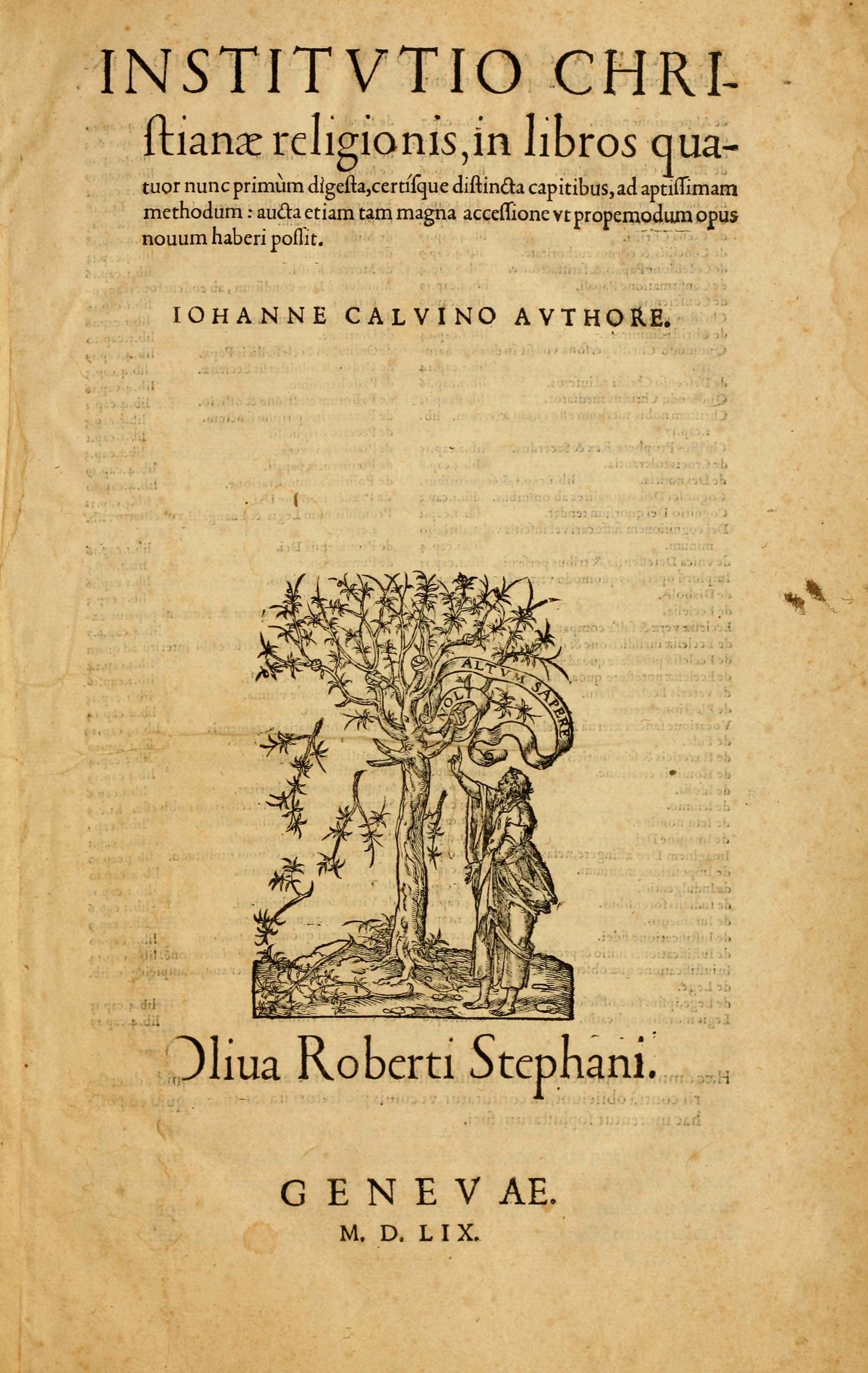
In case you missed it, Michael Jensen had a great
op-ed in yesterday's Australian on the decline of Calvin. The quote from Pulitzer prize-winning novelist Marilynne Robinson on Calvin's influence is worth repeating:
"Any reader of the Institutes must be struck by the great elegance, the gallantry, of its moral vision, which is more beautiful for the resolution with which its theology embraces sorrow and darkness.
...There are things for which we in this culture clearly are indebted to him, including relatively popular government, the relatively high status of women, the separation of church and state, what remains of universal schooling and, while it lasted, liberal higher education, education in the humanities. How easily we forget."
In reading Michael's op-ed, I was reminded of something I've been intending to mention for a while now. My friend
Angus Courtney submitted his honours thesis last year in history. Not only is it a superb piece of work on the 17th Century English Civil and republicanism, but it provides a paradigm shifting argument against the weight of recent historical scholarship. Angus argues that although the puritans (a label many historians have conveniently avoided using when describing the republicans) were well versed in classics, they lived and breathed the bible and Calvinist theology. Here is an excerpt:
"The defining mark of the historiography of English republicanism is its insistence on the classical basis of English republican ideas. Drawing on the theorists of Greece and Rome––the argument goes––a handful of English writers in the mid seventeenth century articulated a vision of republican government infused with classical ideas and values. It is not an unreasonable argument, particularly considering that a number of English republicanism’s central writers, like John Milton, were prolific classicists who were widely familiar with ancient political theorists and historians. Just as significantly, they lived in extraordinary times that sparked an immense body of political re-examination.2 The result was to be a rich tapestry of republican thinking that was unparalleled in the seventeenth century. It was a unique (if fleeting) moment in English political history, in which ideas were developed that would become essential to eighteenth century political thought in England, the Continent, and America...But this approach makes a serious category error. The essential character of English republicanism was not classical. Although English republicans were familiar with classical texts and referred to––as Sidney put it––the ‘great masters of human reason’, these writers were rarely their primary authority, nor was their example primarily the republics of Greece or Rome. If we are prepared to take Milton at his word (as historians have been), this point is unmistakable. According to Milton, ‘The English people…were not inflamed with the empty name of liberty by a false notion of virtue and glory, or senseless emulation of the ancients.’ Rather, they formulated their republican vision and waged war against the king because of their purity of life and blameless character, in an effort to defend law and religion, rooted in a firm trust in God. At its core, English republicanism was a religious republicanism: a Puritan vision of total reformation that extended not only through the church but also to government. It was a vision inspired by Biblical Scripture, directed towards the godliness of the nation and the glory of God.
The radical nature of this proposition warrants its restatement: English republicanism was religious republicanism. Its central thrust was not towards classical republican government, but the government of God. Its purpose was not civic glory, but the godliness of the community for the glory of God. Regarding English republicanism as primarily classical is to overlook the context in which republicanism developed, the explicit goals for which it was used, and the clear biblical arguments that were used to justify its imposition. To appropriate a biblical metaphor, this overlooking of such a critical aspect is akin to having ‘strain[ed] out a gnat but swallow[ed] a camel.’ My assertion is not that classical republican ideas were absent from the English republican vision. Rather, it is that a much more significant aspect has been overlooked. This is an error in need of correction. We must recover the essential religious component of the English republican vision.
 In case you missed it, Michael Jensen had a great op-ed in yesterday's Australian on the decline of Calvin. The quote from Pulitzer prize-winning novelist Marilynne Robinson on Calvin's influence is worth repeating:
In case you missed it, Michael Jensen had a great op-ed in yesterday's Australian on the decline of Calvin. The quote from Pulitzer prize-winning novelist Marilynne Robinson on Calvin's influence is worth repeating:
1 comment:
Fantastic quote!
On swallowing the camel, surely this is just another case of the revision of history by the godless, ie. willful blindness.
American history has suffered the same fate, but many long out of print books are back in print, to the horror of their liberals.
AmericanVision.org republished The Christian Life and Character of the Civil Institutions of the United States.
"We call this 140-year-old book "the ACLU's worst nightmare" because Gary recently debated an ACLU attorney who was terrified at the thought of it being republished and circulated."
Good on your friend for a similar service to our culture.
Post a Comment